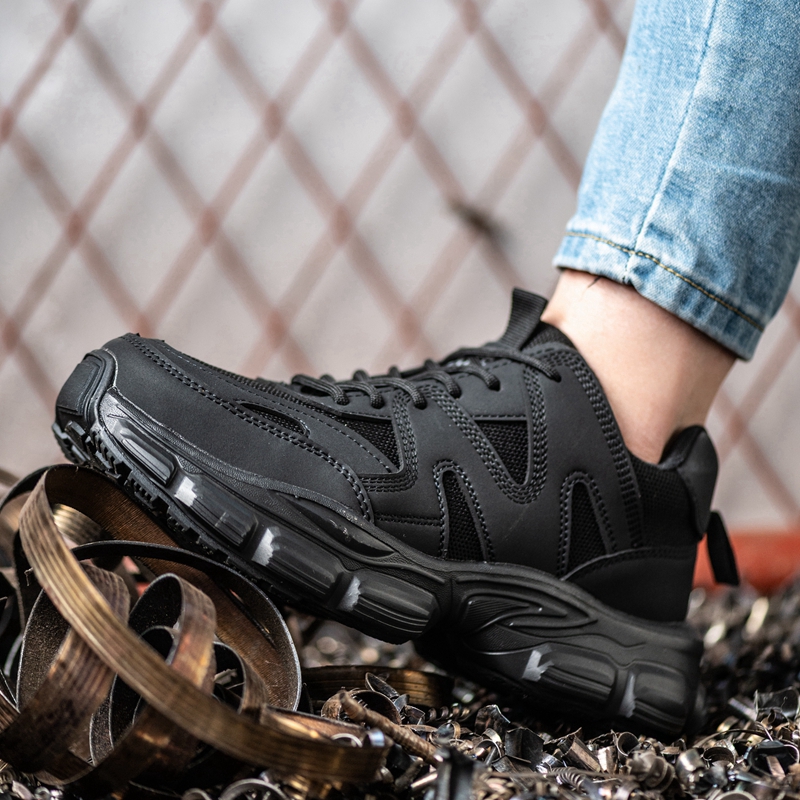Introduction
Choosing the right work shoes is an essential part of ensuring comfort, safety, and productivity on the job. Whether you’re working in construction, healthcare, foodservice, or any other industry, the right footwear can make a huge difference in your daily performance and well-being. In this article, we will explore the key features of work shoes, how to select the right pair for your profession, and why investing in high-quality work footwear is a smart decision for both your health and career.
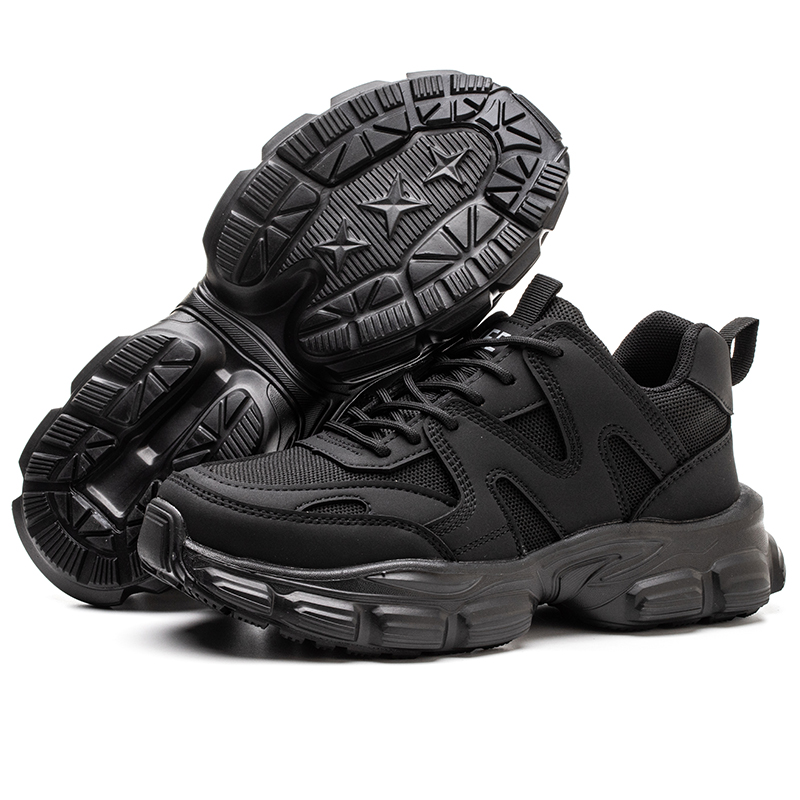
The Importance of Comfortable Work Shoes
Understanding Comfort in Work Shoes
Comfort should be one of the primary factors when choosing work shoes. When you’re on your feet for long hours, your shoes play a crucial role in maintaining your overall health. Ill-fitting or uncomfortable shoes can cause a variety of problems, including foot pain, blisters, and even long-term conditions such as plantar fasciitis or bunions. On the other hand, a good pair of comfortable work shoes can help alleviate pressure, provide proper support, and ensure you stay energized throughout the day.
There are several key aspects of comfort that you should look for when shopping for work shoes:
- Arch Support: Your feet have natural arches that need support to reduce strain. Shoes with built-in arch support can help maintain proper foot alignment and prevent injuries.
- Cushioning: Adequate cushioning in the insole and midsole is important to absorb the shock of walking and standing. Cushioning helps reduce pressure on your feet, knees, and lower back.
- Toe Box: The toe box of a shoe refers to the space in the front where your toes sit. A wide, roomy toe box ensures that your toes don’t get cramped, which can lead to discomfort and conditions like bunions or hammertoes.
- Breathability: Shoes made from breathable materials like mesh or leather can help regulate foot temperature and prevent excessive sweating, which can cause discomfort or lead to fungal infections.
When selecting work shoes, always prioritize comfort. Even if a pair looks stylish or trendy, it’s not worth compromising on comfort for aesthetics. You’ll be spending hours wearing these shoes, so comfort should be your top priority.
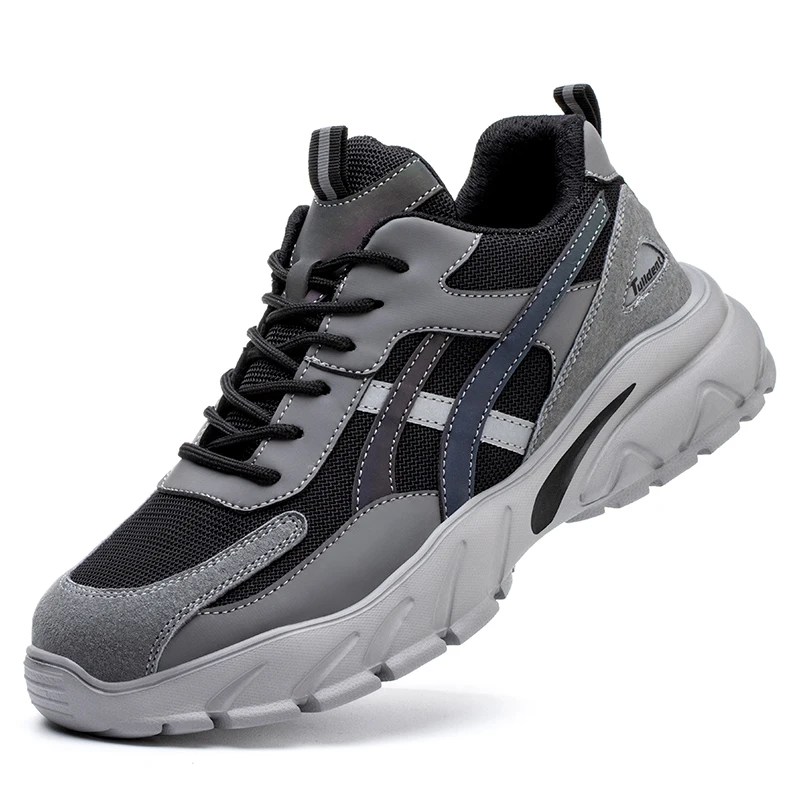
Ergonomics and Foot Health
Beyond comfort, ergonomics is another essential factor in choosing work shoes. Ergonomic footwear is designed to support the natural movement and posture of your feet, which can help prevent long-term health issues. Shoes with good ergonomics reduce the risk of foot, knee, and back pain by supporting proper alignment and cushioning high-impact areas. When shopping for work shoes, make sure to look for features like:
- Heel Height: The height of the shoe’s heel can impact your posture and the alignment of your spine. A moderate heel height is generally ideal for work shoes, as it helps distribute weight evenly across your feet.
- Arch Support: As mentioned earlier, arch support is critical for maintaining proper alignment. Shoes with good arch support can reduce stress on the lower back, hips, and knees.
- Flexible Sole: A flexible sole allows for natural foot movement and makes it easier to walk or stand for long periods. A rigid sole can cause fatigue and discomfort.
Choosing work shoes that prioritize ergonomics is an investment in your health. Poor footwear choices can result in long-term health problems, so don’t skimp on quality when selecting shoes for work.
Safety Features in Work Shoes
Protection from Workplace Hazards
While comfort and ergonomics are vital, safety is another non-negotiable factor in work footwear. Many workplaces pose specific hazards that can be dangerous to your feet, such as falling objects, sharp tools, slippery floors, or exposure to hazardous materials. Work shoes are designed with various safety features to minimize these risks and protect your feet from injury. Some of the most important safety features to look for include:
- Steel-Toe Caps: Steel-toe work shoes provide protection against heavy objects falling on your feet. The steel cap at the front of the shoe acts as a shield, absorbing the impact and preventing serious injuries. Steel-toe shoes are commonly used in industries like construction, manufacturing, and warehousing.
- Slip-Resistant Soles: If you work in an environment with wet or slippery surfaces, slip-resistant shoes are essential. These shoes have specially designed soles that provide superior traction, preventing slips, trips, and falls.
- Waterproofing: Waterproof shoes are ideal for workers who deal with wet environments, such as those in construction, agriculture, or outdoor work. Waterproofing helps keep your feet dry and protected from the elements, preventing discomfort and potential infections.
- Puncture-Resistant Soles: Puncture-resistant footwear is important for workers who handle sharp objects, such as nails or glass. These shoes have additional layers or materials built into the sole to prevent sharp objects from piercing through and injuring your feet.
Selecting shoes with the appropriate safety features for your job is essential to minimize the risk of injury. Always assess the hazards in your work environment and choose shoes designed to offer the best protection against those risks.
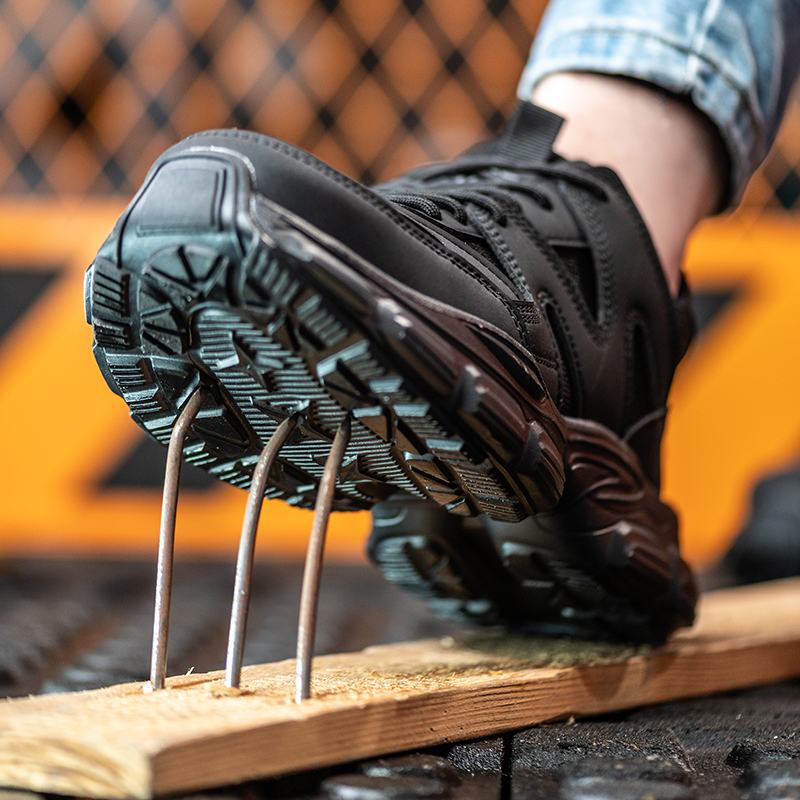
Industry-Specific Safety Standards
Different industries have different safety requirements for work footwear. For example, workers in healthcare may require slip-resistant shoes to prevent falls in slippery hospital environments, while those in construction may need steel-toe boots for protection against heavy equipment. Depending on your profession, it’s essential to choose work shoes that meet industry-specific safety standards.
Many work shoes are certified by organizations like OSHA (Occupational Safety and Health Administration) or ASTM (American Society for Testing and Materials). These certifications ensure that the shoes meet specific safety standards, such as impact resistance, electrical hazard protection, or slip resistance. Always check for these certifications when choosing work shoes for your job.
Durability of Work Shoes
Why Durability Matters in Work Shoes
Durability is another key consideration when buying work shoes. Shoes that wear out quickly or lose their integrity over time can become a significant inconvenience, especially for workers who rely on their footwear for safety and comfort. Work shoes are an investment, and you want to ensure that the pair you choose will withstand the daily demands of your job.
Durable work shoes are made from high-quality materials that can resist wear and tear. The longevity of your shoes depends on the materials used, the construction techniques, and how well you take care of them. High-quality leather, for example, can last much longer than synthetic materials, while shoes with reinforced stitching tend to hold up better against daily use.
Here are some factors that contribute to the durability of work shoes:
- Material Quality: Leather, rubber, and high-performance synthetics are common materials used in durable work shoes. These materials can withstand daily stress and resist damage from moisture, chemicals, or abrasion.
- Sole Durability: The soles of work shoes are especially prone to wear, so it’s important to choose shoes with thick, durable soles. Rubber and polyurethane soles are popular choices due to their long-lasting nature and resistance to wear.
- Reinforced Stitching and Construction: High-quality work shoes feature reinforced stitching and strong construction to prevent the shoes from falling apart after a few months of use. Double stitching and durable adhesives are often used to ensure the shoes last longer.
Investing in durable work shoes means you won’t need to replace them frequently, saving you money in the long run and ensuring you always have reliable footwear for work.
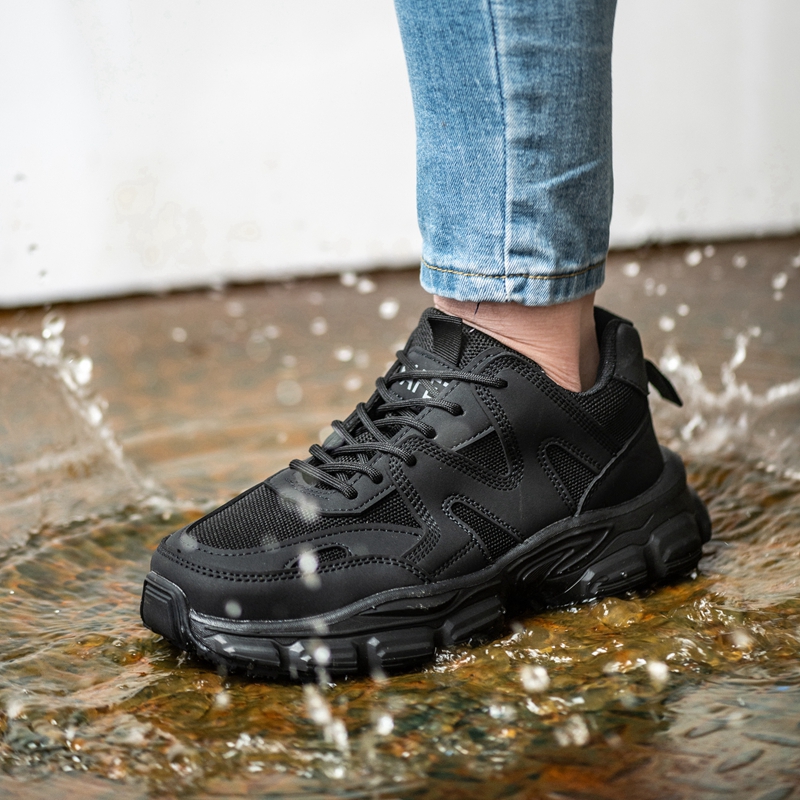
How to Care for Work Shoes to Extend Their Lifespan
Taking proper care of your work shoes can also help extend their lifespan. Here are a few tips on maintaining your shoes:
- Clean Them Regularly: Dirt, dust, and debris can accumulate on your shoes over time, causing the materials to degrade. Clean your shoes regularly to remove these particles and maintain their integrity.
- Use Shoe Protectors: Consider applying waterproofing spray or leather conditioners to protect your shoes from moisture and environmental damage.
- Store Them Properly: When not in use, store your work shoes in a dry, cool place. Avoid leaving them in direct sunlight or in damp areas, as these conditions can cause materials to break down more quickly.
- Repair Damage Promptly: If your shoes start to show signs of damage, such as a worn-out sole or a loose stitch, take them to a professional for repairs. Early repairs can prevent further damage and prolong the life of your shoes.
Proper care and maintenance can help your work shoes last for years, ensuring you get the most out of your investment.
Conclusion: Choosing the Right Work Shoes for Your Profession
Work shoes are a critical part of your daily gear, whether you’re working in construction, healthcare, hospitality, or any other profession. By focusing on comfort, safety, durability, and proper fit, you can choose the best footwear for your job. Remember to prioritize features like arch support, cushioning, slip resistance, and toe protection to ensure your work shoes keep you safe, comfortable, and productive.
Ultimately, the right work shoes not only protect your feet but also support your overall health and well-being. Investing in high-quality, durable shoes is an investment in your long-term success, as well as in your comfort and safety on the job. Make sure to assess your specific needs and select shoes that meet the demands of your profession, and take good care of them to ensure they last for as long as possible.
